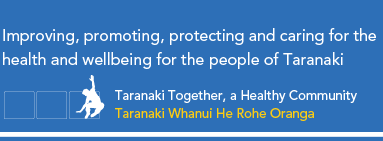Renal Service Enhances Dialysis Experience for Patients
17 March 2014
A Tauranga man born with a degenerative kidney condition has praised the Midland Regional Renal Service for improving his quality of life.
Alport’s Syndrome sufferer Scott Smith always knew kidney failure was in his future having had an older brother and two uncles die from the hereditary condition.
“I knew from an early age it would happen; it was just a matter of when,” said the married father-of-one from Greerton. “I was 25 and on my OE in England when it did.”
Mr Smith, who has had two kidney replacements in the last 15 years, now has to spend 11 hours every other day connected to a home haemodialysis machine - which performs the kidney function of cleaning toxins and removing fluid from his blood.
“For the last 18 months I have been going through the transition from peritoneal dialysis to home haemodialysis (HHD). The biggest change though has been the establishment of the nocturnal service which means my dialysis can take place overnight. New initiatives like that have been really helpful,” said the naturopath.
“Nocturnal dialysis has definitely given me more freedom and a better quality of life.”
Formerly recognised as a service upon which national focus was required for improvement, Mr Smith is an example of why the Midland Regional Renal Service is increasingly being regarded as a national clinical leader in its field.
“The continuous improvement programme underway since 2009 had reaped dividends” said Midland Regional Clinical Networks Project Manager Jane Ireland.
“Other renal services in New Zealand are now requesting our input to facilitate their development,” she said.
The great strides taken by the service - which includes renal services at the Waikato, Bay of Plenty, Lakes, Tairawhiti and Taranaki district health boards - have been spread across all levels, be they human, clinical or structural.
Examples include:
- relationship building with clinical groups and between clinical leaders at all Midland DHBs
- development of a “supportive care” programme for patients/whanau
- innovative treatment strategies such as nocturnal haemodialysis (HD)
- switching from conventional low flux HD to haemodiafiltration for HD patients at most centres
- investigating the future use of telemedicine.
A new Regional Renal Centre on the Waiora Waikato hospital campus opened in late 2012 and additional satellite HD sites opened at Gisborne and Whakatane hospitals. These new units complement the already established satellite services at Rotorua and Tauranga hospitals.
Although the new nocturnal service has helped give Mr Smith a better quality of life he is now part of a steering group which seeks to give even greater freedom to HHD patients.
The Freedom Dialysis Project has been launched to purchase and kit out a campervan with dialysis equipment. It is designed to allow patients the freedom to travel and spend more time away from the confines of home.
“At the moment patients can’t go more than a day away from their machines,” said Mr Smith. “The machines are not transportable so it means you’re really restricted.
“A year ago we had a family holiday down in Christchurch and the DHB down there has a campervan set up for HHD patients. We used it for two weeks travelling around the South Island. It was fantastic; it just gives you such a sense of freedom and independence.”
It is estimated the campervan would cost $100,000-150,000 to purchase and modify.
“We don’t have anything like this in the top half of the North Island and it’s something which is really needed,” said Mr Smith. “Auckland doesn’t have anything like this so I’m anticipating there will be a significant demand.
“You just need to be able to get to somewhere to connect with power and water every other night. It’s not just for holidays but will also allow people to visit friends and family for longer than a night.
“It’s a great project and will make a huge difference to HHD patients.”
The steering group will meet to discuss sponsorship for the project. The target is to have sufficient funds to commission the van by early 2015.
For further information please call
Sue Carrington
Media Adviser
Ph 021 367 789
Last updated: Monday, March 17, 2014


